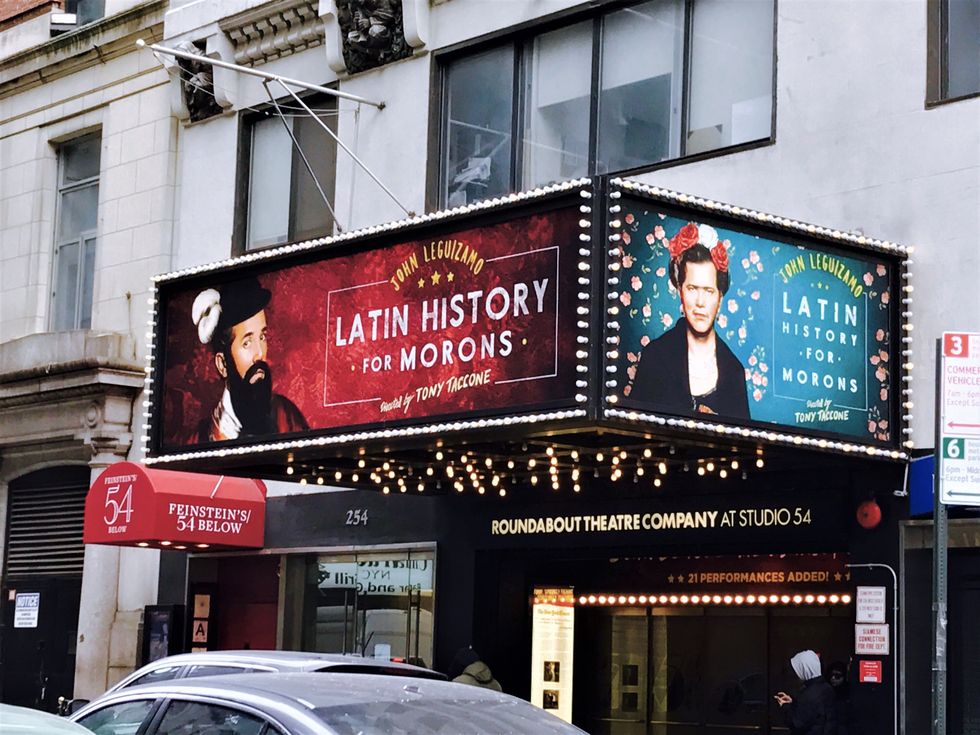It is not often that we think about our education pertaining to American history. Rarely does it cross our mind the possible repercussions that come hand in hand with glorifying the white male accomplishments of the past and ignoring the diverse peoples that lent a hand in creating the country we know today. All over this nation, Latinos and other members of marginalized groups are facing this issue head-on as they are left to be defined by stereotypes.
This negative image further fuels the hatred speak that is aimed towards these American citizens who are told through words and actions that they are not wanted and do not belong in this country. We do not celebrate Latinos the same way we do with the founding fathers but instead pin them as the antagonists to the narrative. And because the current administration and many before it have painted such a universally accepted stereotype of these culturally intricate and diverse peoples, the true history that depicts Latino excellence gets lost behind the rhetoric.
However, there is one Latino who is no longer tolerant of this racist erasure and he currently gives his lecture on the subject seven shows a week at Studio 54 in Manhattan.
John Leguizamo, known for his work as an actor and as an activist, is currently starring in a one-man show titled Latin History For Morons. Having premiered at Berkeley Repertory in California before making its New York debut at the Public Theater, the show depicts the struggle of a father in search of a Latin hero for his son who is being bullied because of his ethnicity. The inspiration for the show came after Leguizamo’s son faced racial slurs and public humiliation in his own classroom. Wanting to do something to empower him as a young latino, Leguizamo began researching in hopes to “weaponize our history so [his son] wouldn't have to fight the bullies at school.”
Equipt with nothing but a chalkboard and a multitude of research, Leguizamo shows his audience that white people are not the only ones allowed to stand with pride in their American history. His examples of Latino excellence range from revolutionaries to pop culture icons to politicians, none which have received the recognition that they are due. In an interview with CNN, he shares:
“I had no idea that we had 10,000 unknown Latino patriots that fought [in the American Revolution], and that Cuban women in Virginia sold their jewelry to feed the Patriots, and that Galvez, a general in the Revolutionary War who was Latin, gave $70,000 worth of weapons to George Washington, so we too financed the war. We too are the sons and daughters of the American Revolution. That to me was like, ‘How was that kept from me? How was that kept from Americans?’”
Latino history is a subject kept from many people. On a systemic level, high school U.S. history courses geared for those in Advance Placement focus solely on the white men who discovered this country by displacing those who already lived there, many who were Mexican as was the case with the annexation of Texas in 1845. In recent years, the problem has expedited as politicians and state officials have attempted to cease the exposure to Latino history.
2010 brought the condemning of the Mexican-American studies program in Arizona. This decision came from the rationale that Latino students were learning that they were oppressed by white people. This was seen as problematic because “schools should not be encouraging students to resent a particular race.” However, resentment is not created by knowledge. Resentment comes from being told there is only one side of the story and being sheltered from the ugly parts that show the country’s true character.
Even when people demand a change in their education, there are still many battles to be won. In 2016, the Texas Board of Education received much criticism after complying with educators who wished to teach more Latino history in their public schools where half of the student body identified as Hispanic. In choosing the new textbook for the desired curriculum, the board selected a book which depicted Latinos as lazy and the perpetrators of crime and drug use in the country. This comes after a history of complaints regarding Texan textbooks who have made the errors of “calling Moses a Founding Father and downplaying slavery as a cause of the Civil War” as well as describing slaves as “workers.”
In this day and age, the world needs more voices speaking out about the forgotten history of this country. While John Leguizamo has spoken about how he wishes he could trade in his celebrity status to take on politicians in Texas to fight on behalf of illegal gerrymandering and Latino education, everyone needs to take a stand to help fight the insistent erasure of historical events and people. This is a fight that cannot be won by force but, as Leguizamo has so perfectly exemplified, through words and knowledge. Latino or not, when we learn about who has paved the way before us to help us stand where we are today, there is an empowerment that allows us to enter the future with a sense of pride. Including the history of Latinos not only allows for this pride to reach a larger group of individuals but could help combat the supremacist ideas that constantly berate American citizens who are made to feel that they are second rate.
What power would this administration have to attack Latino people if they knew we were present for every major American war with numbers in the thousands? If it was universal knowledge that Hispanics from a variety of backgrounds explored what would become American territory approximately a century before the establishment of Jamestown? That we had our first Latino elected into the U.S. Senate in 1928 who helped write portions of the constitution that ensured security against discrimination towards Spanish-speakers on accounts of race or language. That in 1946, the court ruling of Mendez v. Westminster School ruled against unconstitutional segregation of Mexican students, paving the way for Brown v. Board of Education and the dismemberment of segregating schools.
The battle for proper historical representation is far from over but we must make it our job to face the future of this nation armed with the facts and knowledge that will help us achieve our goal of being celebrated for the brave, monumental, and hard-working individuals that we Latinos are.
Latin History For Morons runs until February 25th at Studio 54 in New York, NY



 StableDiffusion
StableDiffusion StableDiffusion
StableDiffusion StableDiffusion
StableDiffusion Photo by
Photo by  Photo by
Photo by  Photo by
Photo by 
 Photo by
Photo by  Photo by
Photo by  Photo by
Photo by  Photo by
Photo by  Photo by
Photo by 












